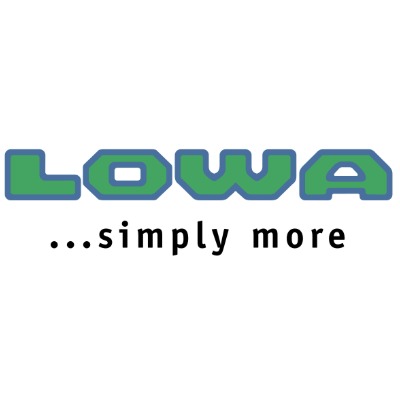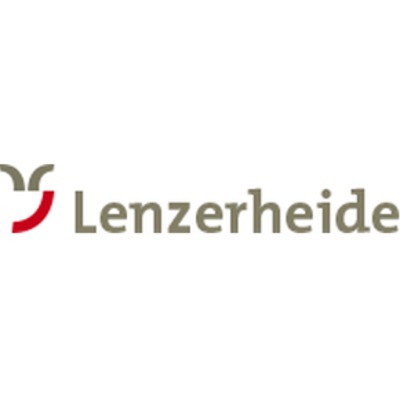Vail Resorts Reports Fiscal 2019 First Quarter Results & Season Pass Results

Vail Resorts, Inc. has reported results for the first quarter of fiscal 2019 ended October 31, 2018, provided season pass sales results and certain early ski season indicators and reaffirmed its guidance for fiscal 2019.
Highlights
- Net loss attributable to Vail Resorts, Inc. was $107.8 million for the first fiscal quarter of 2019 compared to a net loss attributable to Vail Resorts, Inc. of $28.4 million in the same period in the prior year. Fiscal 2019 first quarter net loss included the after-tax effect of acquisition and integration related expenses of $4.9 million and an incremental loss of $3.6 million from off-season operations at the resorts acquired during the quarter, as well as approximately $1 million of headwind from currency translation related to operations at Perisher, which the Company calculated on a constant currency basis by applying current period foreign exchange rates to the prior period results. As previously disclosed, fiscal 2018 first quarter net loss included a tax benefit of approximately $51.8 million (or $1.29earnings per diluted share) related to employee exercises of equity awards, primarily attributable to the CEO's exercise of expiring stock appreciation rights (SARs) during the quarter.
- Resort Reported EBITDA loss was $72.5 million for the first fiscal quarter of 2019, which includes $6.6 million of acquisition and integration related expenses and an incremental loss of $2.6 million from off-season operations at the resorts acquired during the quarter, as well as approximately $2 million of headwind from currency translation related to operations at Perisher, calculated on a constant currency basis, as compared to the prior year's results. In the same period in the prior year, Resort Reported EBITDA loss was $54.1 million, which included $0.7 million of acquisition and integration related expenses.
- Season pass sales through December 2, 2018 for the upcoming 2018/2019 North American ski season increased approximately 21% in units and 13% in sales dollars as compared to the period in the prior year through December 3, 2017, including all military pass products in both periods. Pass sales include Stevens Pass and Triple Peaks pass sales in both periods and are adjusted to eliminate the impact of foreign currency by applying an exchange rate of $0.77 between the Canadian dollar and U.S. dollar to the current period and the prior period for Whistler Blackcomb pass sales.
- The Company reaffirmed its guidance for fiscal year 2019 of $718 million to $750 million of Resort Reported EBITDA.
Commenting on the Company's fiscal 2019 first quarter results, Rob Katz, Chief Executive Officer, said, "Our first fiscal quarter historically operates at a loss, given that our North American mountain resorts are not open for ski operations during the period. The quarter's results are primarily driven by winter operating results from Perisher and our North American resorts' summer activities, dining, retail/rental and lodging operations, and administrative expenses. Perisher performed very well in the first quarter with outstanding conditions generating record results for the Australian winter season, with strong visitation and revenue growth across the business. Our consolidated results from Perisher were negatively impacted by the strong U.S. dollar, which created an approximate $2 million Resort Reported EBITDA headwind from currency translation in the quarter, on a constant currency basis, as compared to the prior year's results. Whistler Blackcomb's summer business performed well with strong performance in its world class mountain biking operations and summer activities, including the new Cloudraker Skybridge, which was very popular with sightseers. Our U.S. Epic Discovery business continues to grow and generate strong financial returns on the capital we invested, and performed in line with our expectations for the quarter. Our lodging business produced another strong first fiscal quarter, with continued success from our properties at Grand Teton Lodge Company and at our Colorado and Utahresorts."
Regarding Real Estate, Katz said, "Real Estate Reported EBITDA was a loss of $1.3 million for the first fiscal quarter, as compared to a loss of $1.1 million in the same period the prior year. We remain in discussions with developers on a number of potential land sales at the base of our resorts."
Katz continued, "Our balance sheet at quarter end remains very strong. We ended the quarter with $141.0 million of cash on hand, $120.0 million of borrowings under the revolver portion of our senior credit facility and total long-term debt, net (including long-term debt due within one year) of approximately $1.5 billion. As of October 31, 2018, we had available borrowing capacity of $206.0 million under the revolver component of our Vail Holdings, Inc. senior credit facility. In addition, we had $155.1 million available under the revolver component of our Whistler Blackcomb credit facility. Our Net Debt was 2.3 times trailing twelve months Total Reported EBITDA, which is higher than the prior quarter due primarily to the addition of $265.6 million of incremental term loan borrowings associated with the resort acquisitions during the quarter. I am also very pleased to announce that our Board of Directors has declared a quarterly cash dividend on Vail Resorts' common stock. The quarterly dividend will be $1.47 per share of common stock and will be payable on January 10, 2019 to shareholders of record on December 27, 2018. Additionally, the Company repurchased approximately $50.0 million of stock during the quarter at an average price of $252.66."
Moving on to season pass results, Katz said, "As we approach the end of our selling period, season pass sales for the North American ski season are up approximately 21% in units and approximately 13% in sales dollars through December 2, 2018 compared to the prior year period ended December 3, 2017, including all military pass sales and pass sales from Stevens Pass and Triple Peaks in both periods and adjusted to eliminate the impact of foreign currency by applying an exchange rate of $0.77 between the Canadian dollar and U.S. dollar to the current period and prior period for Whistler Blackcomb pass sales. Growth in our total season pass sales dollars was lower than our unit growth, given the inclusion of the new Military Epic Pass, which is available at a substantial discount to our Epic Pass. The average price increase on all non-military passes was approximately 3.3%. Excluding sales of military passes to new purchasers who were not pass holders last year, season pass sales increased approximately 8% in units and 10% in sales dollars over the comparable period in the prior year.
"We are very pleased to see double digit revenue growth in our season pass program after a very strong record performance last year. For the year, and excluding sales of military passes to new purchasers who were not pass holders last year, we achieved solid growth in our Colorado, Destination and Whistler Blackcomb markets, while experiencing declines in both the Northern California and Utah markets. Excluding sales to the Northern California and Utah markets and sales to new military pass holders who were not pass holders last year, our season pass unit growth was up 11%. We were pleased to see very strong growth in our Northeast market, benefiting from the impact of the inclusion of Stowe, Okemo and Mount Sunapee on our passes. Overall, we achieved solid growth in new pass holders this year, even excluding the significant number of new military pass holders. This growth in new pass holders is particularly notable following the record new pass holder growth we achieved in the prior two years. We also saw solid growth in our renewing pass holders and a stable renewal rate, outside of our Tahoe and Utah markets, which saw a modest decline. Excluding sales to new military pass holders, our revenue growth, as compared to unit growth, was slightly lower than in previous years, as we continue to broaden the penetration of our pass program to products designed for lower frequency guests. Our military pass program delivered nearly 100,000 new pass holders to our program, representing an incredible opportunity for our Company to make our resorts more accessible to those who have served their countries in the armed forces as well as their families. This significant expansion of our pass holder base creates a meaningful business opportunity for our Company, while building tremendous loyalty with these new guests. Including military and Epic Australia passes, we expect our total season pass holders this year will exceed 925,000, representing an incredible group of highly loyal and passionate guests."
Katz continued, "Overall, lodging bookings for the season ahead are trending in-line with prior year bookings. Based on historical averages, around half of the bookings for the winter season have been made by this time. Our early season results have been encouraging, with strong conditions across our Western U.S. and Northeastern U.S. resorts. Our Colorado resorts have had a particularly strong start to the season with early snow and cold temperatures conducive to snowmaking, which allowed each resort to open several days earlier than initially expected with significantly improved conditions relative to last year. Our resorts in Tahoe and Utah have opened with typical conditions for this time of year while Whistler Blackcomb's early season has been more challenging with limited snowfall to date. Our Northeast resorts have started strong with Stowe and Okemo opening earlier than in prior years. Importantly, we were able to complete the core systems integrations across our acquired resorts on their respective opening days to further enhance the guest experience in our first year of operating these resorts."
Operating Results
A more complete discussion of our operating results can be found within the Management's Discussion and Analysis of Financial Condition and Results of Operations section of the Company's Form 10-Q for the first fiscal quarter ended October 31, 2018, which was filed today with the Securities and Exchange Commission. The following are segment highlights:
Mountain Segment
- Mountain segment net revenue decreased $3.1 million, or 2.1%, to $145.0 million for the three months ended October 31, 2018 as compared to the same period in the prior year, which was primarily attributable to a decrease in the average Australian exchange rate as compared to the prior year. On an Australian dollar basis, Perisher net revenue increased by 4.7%.
- Mountain Reported EBITDA loss was $76.4 million for the three months ended October 31, 2018, which represents an incremental loss of $18.0 million, or 30.8%, as compared to the Mountain Reported EBITDA loss for same period in prior year, which was primarily attributable to a $5.9 million increase in acquisition and integration related expenses, $5.4 million of increases to corporate overhead costs and $2.6 million of incremental off-season operational losses from Triple Peaks and Stevens Pass, as well as approximately $2 million of headwind from currency translation related to operations at Perisher, calculated on a constant currency basis, as compared to the prior year's results.
Lodging Segment
- Lodging segment net revenue (excluding payroll cost reimbursements) increased $2.5 million, or 3.6%, to $71.2 million for the three months ended October 31, 2018 as compared to the same period in the prior year.
- Lodging Reported EBITDA was $3.9 million for the three months ended October 31, 2018, which represents a decrease of $0.5 million, or 10.5%, as compared to the same period in the prior year, primarily attributable to an increase in allocated corporate general and administrative costs, partially offset by the incremental operations of Triple Peaks.
Resort - Combination of Mountain and Lodging Segments
- Resort net revenue was $219.9 million for the three months ended October 31, 2018, a decrease of $0.3 million as compared to resort net revenue of $220.2 million for the same period in the prior year.
- Resort Reported EBITDA loss was $72.5 million for the three months ended October 31, 2018, which includes $6.6 million of acquisition and integration related expenses, $6.5 million of increases to corporate overhead costs and $2.6 million of incremental off-season operational losses from Triple Peaks and Stevens Pass, as well as approximately $2 million of headwind from currency translation related to operations at Perisher, calculated on a constant currency basis, as compared to the prior year's results. This compares to a Resort Reported EBITDA loss of $54.1 million in the same period in the prior year, which included $0.7 million of acquisition and integration related expenses primarily attributable to the acquisition of Whistler Blackcomb.
Total Performance
- Total net revenue decreased $0.8 million, or 0.4%, to $220.0 million for the three months ended October 31, 2018 as compared to the same period in the prior year.
- Net loss attributable to Vail Resorts, Inc. was $107.8 million, or a loss of $2.66 per diluted share, for the first quarter of fiscal 2019 compared to a net loss attributable to Vail Resorts, Inc. of $28.4 million, or a loss of $0.71 per diluted share, in the first quarter of fiscal 2018. Fiscal 2019 first quarter net loss included the after-tax effect of acquisition and integration related expenses of $4.9 million and an incremental loss of $3.6 million from off-season operations at the resorts acquired during the quarter, as well as approximately $1 million of headwind from currency translation related to operations at Perisher, which the Company calculated by applying current period foreign exchange rates to the prior period results. Included in the first quarter of fiscal 2018 was a tax benefit of approximately $51.8 million (or $1.29 earnings per diluted share) related to employee exercises of equity awards (primarily related to the CEO's exercise of expiring SARs).
Return of Capital
The Company declared a quarterly cash dividend of $1.47 per share of Vail Resorts common stock that will be payable on January 10, 2019 to shareholders of record on December 27, 2018. Additionally, a Canadian dollar equivalent dividend on the exchangeable shares of Whistler Blackcomb Holdings Inc. will be payable on January 10, 2019 to shareholders of record on December 27, 2018. The exchangeable shares were issued to certain Canadian persons in connection with our acquisition of Whistler Blackcomb Holdings Inc. In the first quarter of fiscal 2019, the Company repurchased 197,896 shares at an average price of $252.66 for a total of approximately $50.0 million.
Outlook
Commenting on fiscal 2019 guidance, Katz continued, "Given our first quarter results and the indicators we are seeing for the upcoming season, we are reiterating our Resort Reported EBITDA guidance for fiscal 2019 that was included in our September earnings release, based on the assumptions incorporated at that time, including foreign currency exchange rates. That said, the North American ski season has just begun, with our primary earnings period still in front of us."













